Publications
Share

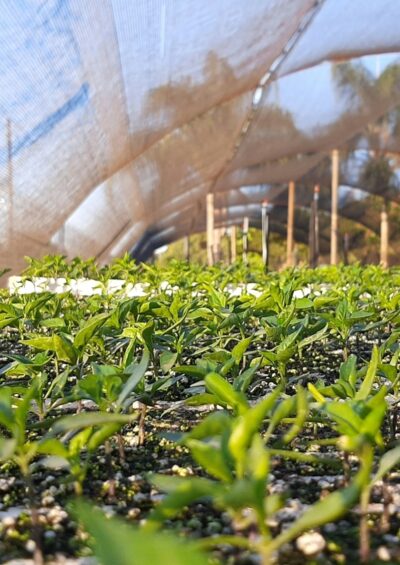
Reports
This technical guide proposes concrete steps and actions to help African countries develop strong, high-performing Long-Term Low Emission and Climate Resilient Development Strategies that chart a low-emission development path, build resilience, encourage innovation, and create new opportunities for green growth.
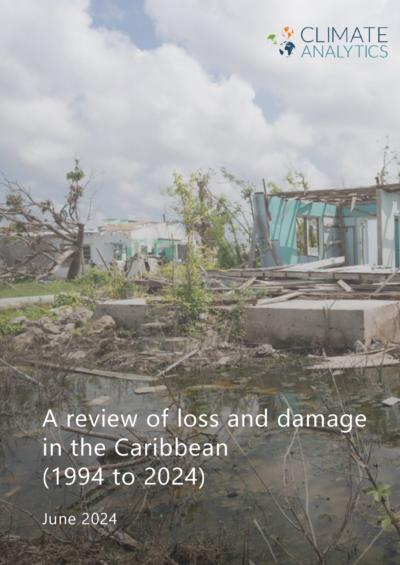
Reports
Loss and damage from climate change has been the lived reality of Caribbean small island developing states (SIDS) for decades. Despite efforts to adapt, it is reversing development gains, leaving lasting financial stress, and causing irreparable damage, including the loss of cultural heritage. This report is the first to provide a systematic overview of how Caribbean countries are framing and reporting on loss and damage.
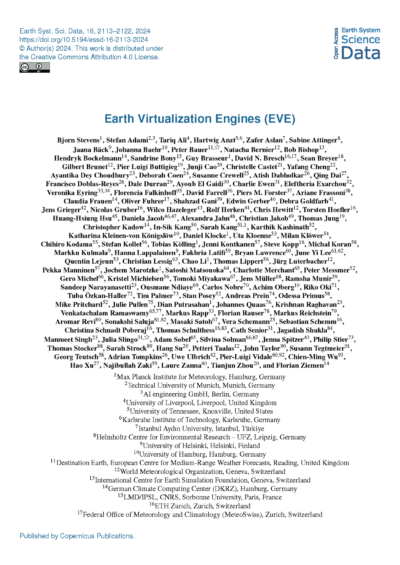
Peer-reviewed Papers
The authors propose creating an international federation of research institutions that improve the quality and accessibility of Earth systems data. The purpose is to empower all people to respond to the immense and urgent challenges posed by climate change.
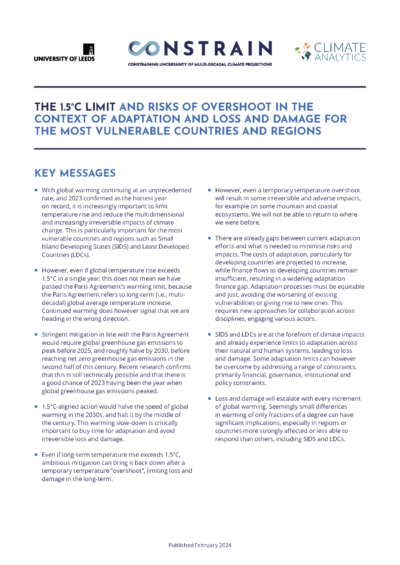
Briefings
This briefing looks at what the 1.5°C limit means in terms of adaptation and loss and damage for the most vulnerable countries and regions. It finds that slowing down warming is critical to buy us time to adapt and also to avoid irreversible loss and damage. Even if warming rises above 1.5°C (overshoot) we can bring it down again with ambitious emissions reductions.
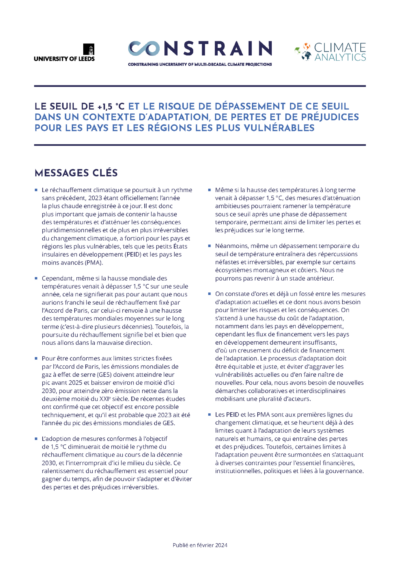
Briefings
Ce rapport examine ce que la limite de 1,5 °C signifie en termes d'adaptation et de pertes et dommages pour les pays et régions les plus vulnérables. Il constate qu'il est essentiel de ralentir le réchauffement pour nous donner le temps de nous adapter et pour éviter des pertes et des dommages irréversibles. Même si le réchauffement dépasse 1,5 °C, nous pouvons le faire baisser à nouveau en réduisant les émissions de manière ambitieuse.

Peer-reviewed Papers
When it comes to water, adaptation to climate change becomes less effective when warming is above 1.5°C, according to a new study looking at water-related climate risk at 1.5°C, 2°C, 3°C, and 4°C of warming. The study finds adaptation needs to go hand-in-hand with ambitious emissions reductions and decarbonisation.